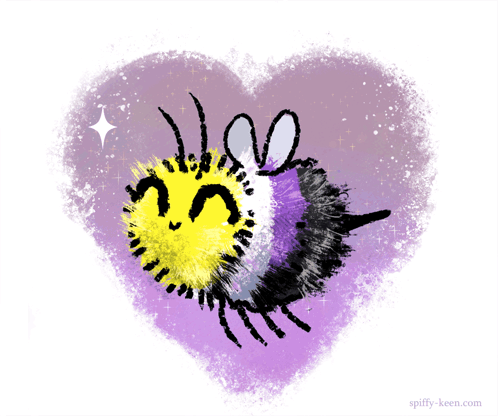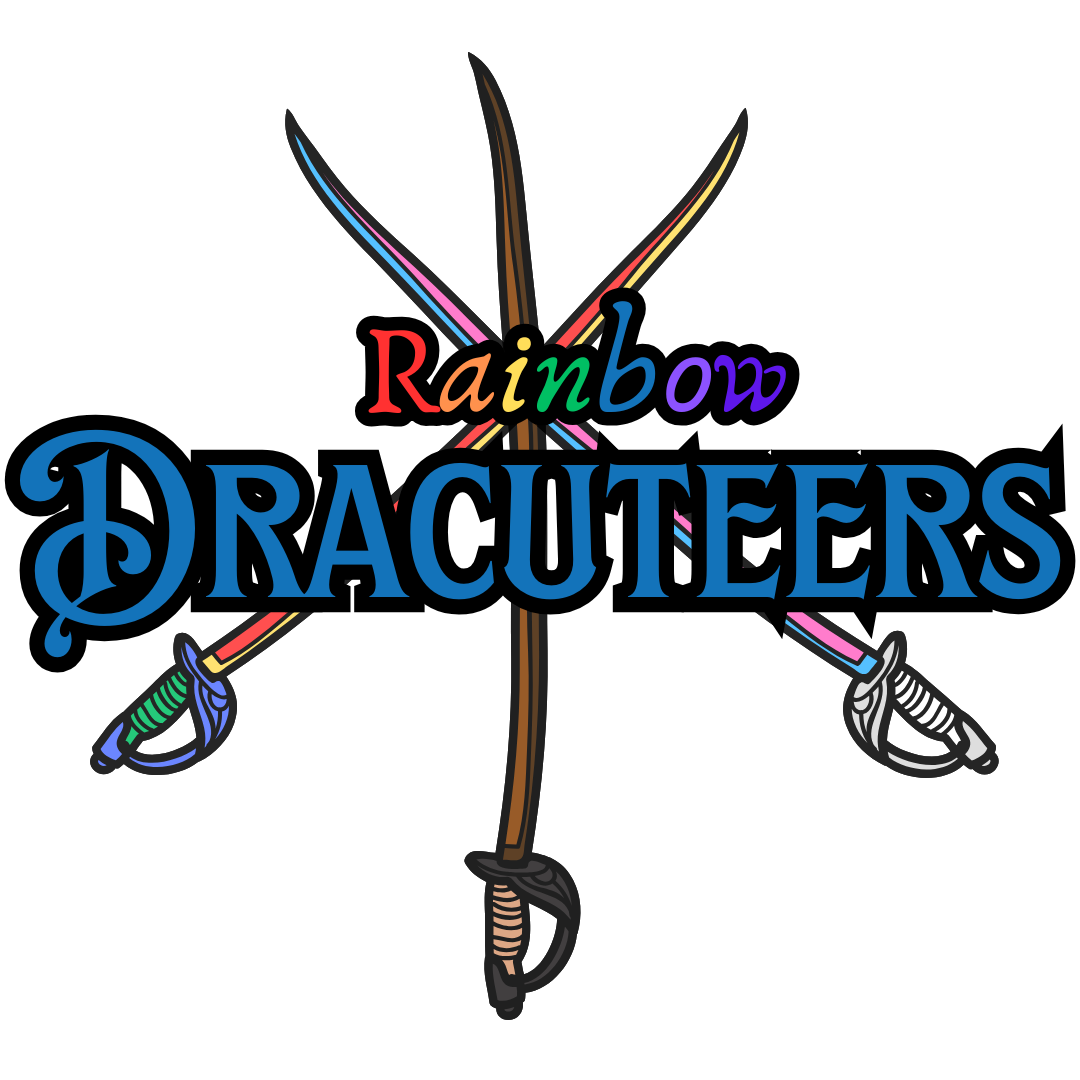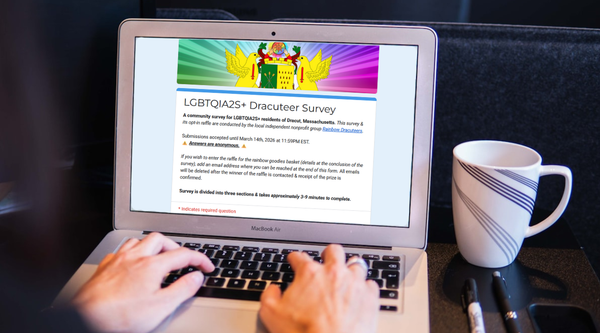What Your Partner Being Non-binary Means
What happens when your newlywed wife comes out as non-binary? And what does that mean for you, both as an LGBTQ+ ally & a life partner?
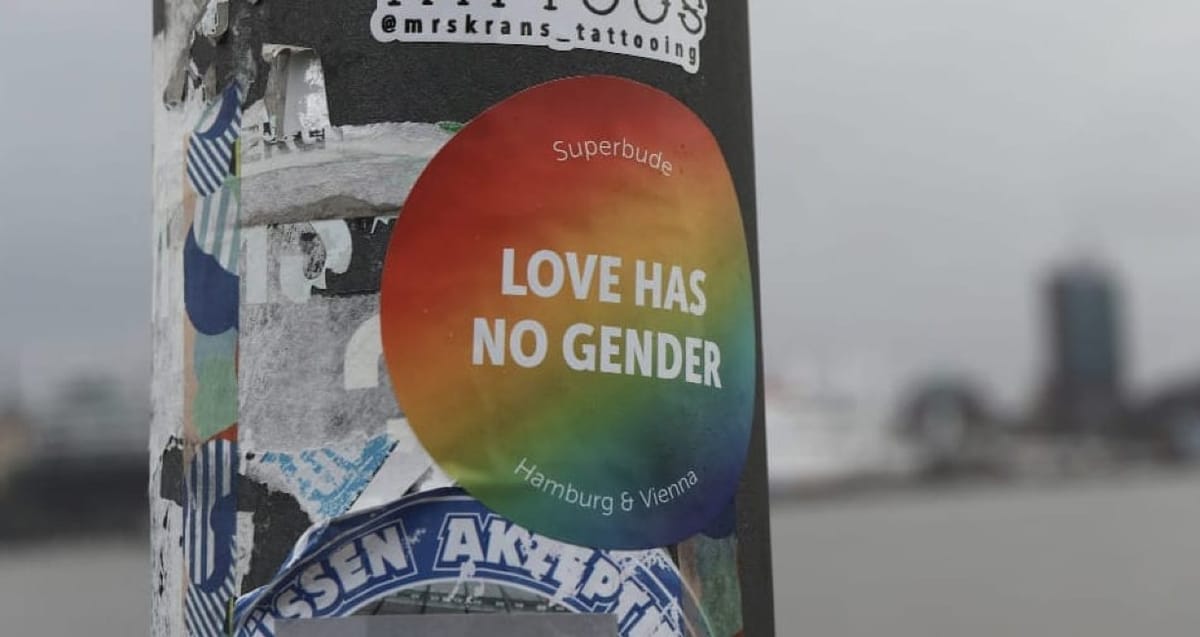
Hello! This is my first official blog post here, so I’ll just quickly introduce myself. I’m Patrick, Kaye’s partner, we’ve been together since 2013 and we got married in 2018. If you’ve read Kaye’s post from last week, you’ll know they started coming out as non-binary in 2019-2020, so you won’t have to do a lot of math to deduce that this happened well into our relationship and even after we were married.
And if you found this post, perhaps you find yourself in a similar situation that I found myself in with an AFAB (assigned female at birth) partner coming out as non-binary. I’m not going to rehash Kaye’s entire story, they already did an eloquent job describing that.
I’m also not really going to talk about my own personal history with the queer community, since that’s probably a post of its own that I’ll make later.
I’m really just here to talk about that specific journey of having your long-term partner tell you that they’ve got one of those strange new-fangled gender identity thingamabobs you hear tell about on the news and whatnot, dagnabbit!

I kid, but let’s be clear: I married Kaye knowing they were a queer person. I’ve never had a problem with it. I myself don’t really identify as queer (more on that in a bit), but I’ve always been an ally, and if you’re here and you’re not queer, I’m going to assume you’re trying to be an ally too.
So when I say I was a little unmoored by Kaye’s initial exploration with a non-binary identity, I want you to understand that fear of the unknown hits us all, especially if we fear it may impact us negatively somehow.
So you’re a cishet (cisgender & heterosexual) dude like myself, you’re attracted to women, you think you’ve married a woman, and then they realize that it’s not so simple and tell you so. If that’s you, then I’ve got some bad news: Even if you love your partner, even if you’re open-minded and progressive, even if you understand how difficult and scary it must be for your partner to tell you—of all people—something like this, EVEN THEN you will be tempted to take this revelation personally. “What does this say about me? What does this mean about my marriage? Maybe this is just a temporary phase!” That’s just human nature.
And while I don’t want to spend too much time dwelling on this (hopefully) brief moment of fear and denial, it’s valuable in this moment to understand that this is the core of bigotry. Not hatred or even malice necessarily, just thoughtlessness and making other people’s self-actualization about you and your problems. It can be valuable as an ally to remember that for a lot of people bigotry is a choice between accepting that their life isn’t quite the way they thought it was or asserting that they understand someone else better than they understand themselves.
But at the same time, accepting that life isn’t quite the way I thought it was (in my case, my partner does not identify as a cis-woman) required replacing misinformation with new, more accurate information, and the thing about Kaye’s journey is that it was gradual and I didn’t really know what the “end-game” looked like—and neither did Kaye, really. So in that somewhat liminal space of “trying things out”, I had to fight the urge to steer Kaye in any particular direction.
When we lived in Upstate New York, we were acquainted with a local lesbian couple who were also fans of the local roller derby scene (Go Sufferjets!). We'd meetup every-so-often at home games in town. Eventually, one of the pair came out as a trans man, and the couple amicably split up not long afterwards. I never asked (because it was never any of my business) but it did seem like a key breaking point in their relationship was simply because one partner was a lesbian and her significant other was no longer living as a woman. And that makes sense, right? It’s not really anybody’s fault, but you can’t really help what you’re attracted to. So at the time, I think that was always the biggest fear in my mind.
I didn’t really know what Kaye’s non-binary journey would look like. How much they would actually change? And as I said, I’m a hetero guy. Depending on how far Kaye slid towards a less explicitly feminine presentation, there was a chance it might have impacted how attractive they were to me. I like feminine qualities. I find them attractive. I don’t generally find masculine qualities very attractive. So having your attractive partner tell you that they don’t really identify with the gender you find most attractive will almost certainly make you want to take a defensive posture. Relationships always make coming-outs more complicated, and the person coming out is acutely aware of that. They know there’s a chance that this journey could result in changing the nature of that relationship.
But you are also not the only relationship of theirs that will be impacted like this. Friends, family, co-workers... coming out is a perpetual process. If you love the person coming out to you, you’ll address whatever hangups you might have, and then you try to support them so the next coming out is easier. If that means telling your partner “even if this ultimately changes the nature of our relationship, I want you to be the happiest, most authentic version of yourself you know how to be”, then that’s what you’ll have to do.
Now, coming out as non-binary isn’t quite the same as coming out as a more binary trans person. So in my case, my attraction to Kaye has not been impacted, and our relationship has not been negatively impacted by their coming out in any way. But it was impossible for me to know that in the beginning. To a certain extent, trusting that a person you love understands themself better than even you do is a leap of faith in that person, and it’s never a trivial decision, especially if you feel you’ve got skin in the game.

But once you can mentally move yourself to the point where you recognize this isn’t something your partner is DOING, it’s something your partner IS, you’ll learn to just follow their lead. After that, the hardest part is just getting the pronouns correct. And that’s just practice on your part and patience on your partner’s part. Well... there is one other part of that.
When you’re not around your partner and you’re talking about them with other people (especially if they’re still in the closet with most people), you may feel pressured to misgender them.
I’ll be honest, after lockdown ended in 2021 and I started going back to in-person work, any time a conversation with a co-worker turned towards Kaye, I constructed my sentences to avoid using pronouns at all. I didn’t want to misgender Kaye to other people, but I’ll also admit, I didn’t want to start a conversation about it, and I felt like referring to Kaye as “they” would inevitably start a conversation. And sure, part of that reluctance is about just not wanting to talk about your partner’s gender identity when they haven’t come out publicly yet, but even once that was no longer an issue, I struggled with using “they/them” when talking about Kaye to other people.
Eventually, I had to reckon with the deeper reason why, and that’s the thing I really want to talk about here, because I’m not sure I’ve heard anybody else talk about this aspect of it:
What might people assume about MY sexuality?
Like I said, I am and have always been cishet, but I’ve never been very masculine. Many people (even ex-partners!) often assumed I might be gay. So I’ve always been a little bit sensitive to people making assumptions about my sexual identity for me.
But in my mind, I wondered if no longer addressing or generally thinking of my partner as “a woman” meant I actually wasn’t “heterosexual”. After all, “non-binary” isn’t really an “opposite” gender, and I am undeniably attracted to a non-binary person.
So after months of pushing away selfish thoughts about what my partner being non-binary meant FOR ME, I finally found myself actually reckoning with the reality of that question.
What does being “non-binary” even MEAN? Not just for me or for Kaye or for any particular person. What does it actually mean in practical terms?
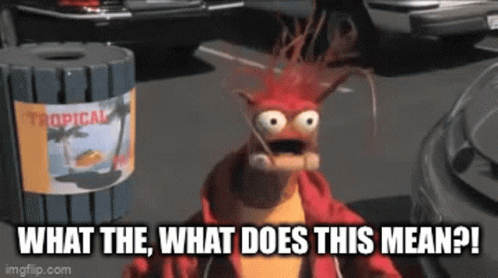
It means the labels and mental models we’ve developed as a society were built around a largely incomplete idea of gender that assumed a natural binary. It means “heterosexual” is a label chosen by me to signify my own desires in a general way, not a title I need to earn or defend. It means the minute that or any title doesn’t adequately communicate my own experience, it stops being a useful label for me. “Man” is still an effective label for me. Even “heterosexual” still generally fits in my mind even if it doesn’t capture the breadth of my actual experience because I just haven’t found a label that feels more accurate to describing the experience of my attraction. But that doesn’t mean I am ONLY ALLOWED to be attracted to women, or that every human I’m attracted to is ONLY ALLOWED to be considered a woman.
Your partner being non-binary means that a lot is probably going to change for the both of you. It means you’ll have to change the way you think about yourself and your partner. It means you’ll have a lot of long conversations.
But most importantly, it means your partner trusts you enough to go through all of that with you, not knowing for sure what the end result might be. So if you find yourself in the shoes I was in a few years back, trust that they aren’t doing this lightly and show them as often as you can that their trust was not misplaced.
Want to join the conversation? Sign up for our newsletter & gain access to commenting on future posts!
